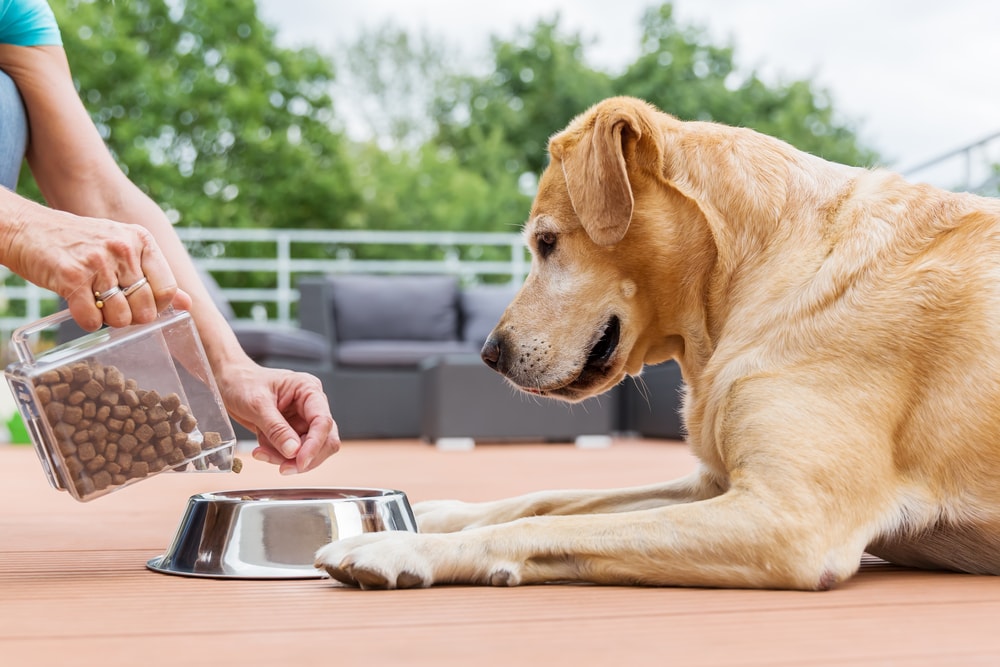Two years ago, veterinarians began noticing a significant increase in cases of canine dilated cardiomyopathy (DCM) heart disease in dogs. The FDA began investigating and recently announced a strong correlation between DCM and grain-free dog foods and diets.
In June 2019, the FDA released a list of popular grain-free dog foods strongly connected with the DCM cases. These dog foods replaced grains with legumes, like peas and lentils, and potatoes.
What does all of this mean for your pet and pet food? Should you stop using grain-free pet food? What if your pet has sensitivities or allergies to grains? The team at Union Lake Veterinary Hospital wants you to better understand what all of this means for your pet and advise you on what to feed your dog now.
What Is Canine Cardiomyopathy?
Canine dilated cardiomyopathy (DCM) is a heart condition that causes the heart to weaken. DCM affects the left ventricle, which is in charge of carrying oxygenated blood to the body. DCM causes the walls of the heart to thin and expand, so the ventricle has to work harder. Over time, this condition leads to degenerative heart disease and eventually, death.
Not all dogs who have been eating grain-free dog foods, even the top brands on the FDA’s list, will develop DCM. If you have been feeding your pet grain-free, though, it’s important to watch for these signs of DCM:
- Loss of appetite
- Pale gums
- Increased heart rate when resting
- Coughing
- Difficulty breathing
- Weakness
- Lethargy
- Fainting
Follow up with any of these symptoms at once by scheduling a veterinary examination.
Why Is CDM Related to Grain-Free Dog Food?
This is the question that researchers are working to uncover. The cause and effect relationship is complicated and there are many variables. According to the FDA, 524 pet owners came forward over the past year after their pets were diagnosed with DCM. All of them ate grain-free diets, which is why the FDA suspects these ingredients as a possible cause.
Veterinarians diagnose DCM most often in larger breeds like Golden Retrievers, Cocker Spaniels, Great Danes, and Doberman Pinschers. It is also more common in obese pets, pets that have poor taurine absorption, senior pets, and those who have had an infection of the heart. Genetic factors can also play a key role.
DCM is not rare in dogs, but a grain-free diet seems to increase the risk when paired with these other factors. When a pet has more than one of these predisposing factors, they are at greater risk of developing DCM.
A diet low in meat can create or increase taurine deficiencies and some dogs with DCM respond well to taurine supplements. But the issue seems more complicated than simply taurine levels.
The Brands Under Investigation
The following brands were most prevalent in the reported cardiomyopathy cases. The FDA is continuing to study the ingredients present in these brands and how they play a role in heart disease.
- Arcana
- Zygnature
- Taste of the Wild
- 4Health
- Earthborn Holistic
- Nature’s Domain
- Fromm
- Merick
- California Natural
- Natural Balance
- Orijen
- Nature’s Variety
- NutriSource
- Nutro
- Rachael Ray Nutrish
Take a close look at the list of ingredients in your pet’s food. If the first 10 contain peas, lentils, or other legumes, or potatoes and flour containing these ingredients, use caution. Until we know why these diets are prevalent in the DCM cases, we recommend avoiding foods that contain them.
What Do I Feed My Dog Now?
Purina, Royal Canin, and Hill’s diets are a good source of nutrition without the added legumes–but these are not the only safe dog foods. Even grain-free dog foods should be fine if the ingredients linked to DCM aren’t listed in the first 10 ingredients.
Don’t change your pet’s diet if they are on a prescription or special diet for a health condition without checking with your veterinarian. Also, if you’re changing your dog’s food, switch them over gradually or it can lead to an upset stomach. Over 7 days, gradually decrease the amount of the current dog food while increasing the amount of the new dog food.
If you like to make your own pet food, that’s great. There are wholesome recipes online. Just make sure you understand the proper balance of nutritional needs for your pet. Some good resources on homemade pet foods and pet nutrition are:
- Petdiets.com
- BalanceIt.com
- American College of Veterinary Nutrition
- A Beginner’s Guide to Home Cooking for Dogs
If you have any questions about the FDA updates on grain-free dog foods or your pet’s diet, please contact the friendly, knowledgeable team at ULVH. We are following the FDA investigation and will continue to update you as we learn more.

